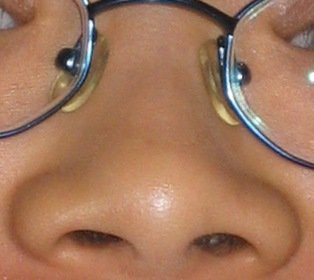As a hospital nurse, one of the things we are always hyperacutely watching for is infection. Every time we take a temperature, look at urine, change a dressing, or hear a cough, we worry about infections. Infections that might be acquired in the hospital, known as nosocomial infections, are an ever-present danger. In fact, you are more likely to get an infection in the hospital than you are doing just about anything else you can possibly think of (1) (2).

Image Credit: Wikimedia Commons
Pathogens that Kill People are Used to Age Beef!
While there are thousands of pathogens that cause infection, a few cause dread in a hospital. One of these is a pathogen known as pseudomonas aeruginosa. While there are other species of pseudomonas bacteria, p.aeruginosa is what we deal with most often and when we say that a patient has pseudomonas, everyone knows which one we are talking about.
Infections with pseudomonas are not always terrible, and this bacteria can even be beneficial. Ironically, the beef industry uses what can be a deadly infection in humans to inoculate beef for dry aging. Much like the process that occurs when making yogurt or beer, the waste products of pseudomonas help to break down and tenderize meat, making a superior product than fresh beef, according to many (1). Eating the bacteria does not seem to be a problem for humans, and it's presence on meats seems to inhibit other pathogens that DO cause humans to get sick (2).

Image Credit: Wikimedia Commons
Why Is Pseudomonas a Problem?
The problem with pseudomonas is that some strains are highly mutatable (3), meaning that they adapt to different environmental conditions extremely well, including antibiotics, and then becomes resistant to these antibiotics. So, when someone gets infected with a strain that is resistant to antibiotics, it can be extremely dangerous.
One of my first experiences with this deadly pathogen was as a young nurse in a long-term acute care hospital. It was not a nursing home and not an acute care hospital, but a sort of in-between place for people who were too ill for a nursing home; not sick enough for a hospital, but couldn't go home either. It was in this type of setting that I cared for a young woman around 30 years old, who had already had a leg amputated up to her hip, although I don't remember exactly why.
Unfortunately the wound became infected with a resistant form of pseudomonas and she'd already taken every antibiotic known to man, but the infections still raged on. As a last resort we were literally putting dilute bleach on her wound as a disinfectant, hoping that it killed the bacteria before it destroyed her tissues. Unfortunately, it didn't work and she eventually died from the infection.
The Proust Phenomenon
That was how I got to know how pseudomonas smells. While the human olfactory system is not as well-developed as other animals, our sense of smell is still relatively evolved and primal, even triggering long forgotten memories, and strong emotions(4),an experience known as the Proust phenomenon from a description in the book The Swann's Way: Remembrance of Things Past by Marcel Proust (5).

Image Credit: Wikimedia Commons
Even though pseudomonas aeruginosa has, possibly, one of the most distinctive smells I have ever encountered, it is nearly impossible to describe. Everyone knows the aroma of baking bread, but most could barely describe it as anything except, well, baking bread. If someone has never smelled baking bread, describing it would be pointless. But once you have smelled baking bread, you immediately know what it is.
Pseudomonas is like that. It's odor is perhaps yeasty and sickeningly sweet, but not horrible. I doubt if you walked into a room with someone who had it that you'd associate it with infection or decay. In fact, when I smell it, it doesn't trigger a reflex of disgust like sewage or the smell of decomposing flesh would, but because of my somewhat unique association with it being something that is life-threatening and needs treatment, it triggers in my brain something more like the check engine light coming on in a car; something needs to be done, and quickly.
The Predictive Ability of this Hypothesis
Several years later, I was changing a surgical dressing on an extremely ill man in the intensive care unit. As I took the dressings off, I saw the telltale almost neon green color on the gauze and whoosh, there was that smell I knew so well. Even after not having smelled it in many years, the check engine light went on in my brain. We have a problem Houston.
I went to the chart and checked to see if he was on any of the antibiotics that are typically used for this pathogen, and checked to see if we had taken a sample of the wound. Having done neither I called the doctor with the information about the green pus and the smell. He was unimpressed, but said to take a sample. However, I knew that time was of the essence and was dismayed by the doctor's refusal to put the patient on antibiotics when I had told him how it smelled!
Image Credit: Wikimedia Commons
Fortunately (well, in a bizarre kind of way), the patient had already had a serious infection prior to this and had an infectious disease specialist on the case. I called her immediately and she, having dealt with pseudomonas many times before, told me to start antibiotics as soon as the wound sample was taken. She was well aware of the distinctive aroma of pseudomonas and, along with the telltale green fluid, was convinced!.
A few days later when the wound culture came back, it confirmed what I already knew: Pseudomonas aeruginosa. Unfortunately, between the infection and his already serious condition, he also died some time later. Another victim of this aromatic bacteria.
Cliff the Beagle Dog Knows What I Mean
While, perhaps, this is unusual in a human to be able to detect an infection by smell, Cliff the beagle was able to accurately detect an intestinal infection called C. Difficile with the same (perhaps better) accuracy as the diagnostic testing we currently use (3).

Wikimedia Commons
Infections do have specific scents, it's just that humans cannot usually detect most of these scents, or at least not detect the specific scents. Most of us can detect the odors associated with serious illnesses, although we couldn't tell you exactly what each scent is from. Pseudomonas is an exception to the rule and can be detected accurately by humans, as is my experience with the myself, the infectious disease doctor, and a few other nurses throughout the years when the subject has come up.
Perhaps, like Cliff, most anyone with an intact sense of smell could learn to detect it with training. I suspect we could be. Why limit our use of aromatic diagnostics to dogs when the medical professionals closest to patients could learn to detect infections too?

This post has received a 0.39 % upvote from @drotto thanks to: @steemstem-bot.
Downvoting a post can decrease pending rewards and make it less visible. Common reasons:
Submit
Well done! This post has received a 7.69 % upvote from @litasio thanks to: @steemstem-bot. Whoop!
If you would like to delegate to the @LitasIO you can do so by clicking on the following link: 10SP
Downvoting a post can decrease pending rewards and make it less visible. Common reasons:
Submit
Congratulations @medhead! You have completed some achievement on Steemit and have been rewarded with new badge(s) :
Click on any badge to view your own Board of Honor on SteemitBoard.
For more information about SteemitBoard, click here
If you no longer want to receive notifications, reply to this comment with the word
STOPDownvoting a post can decrease pending rewards and make it less visible. Common reasons:
Submit
Wow, that was a great post! I hope to read more from you in the future!
Downvoting a post can decrease pending rewards and make it less visible. Common reasons:
Submit
Your Post Has Been Featured on @Resteemable!
Feature any Steemit post using resteemit.com!
How It Works:
1. Take Any Steemit URL
2. Erase
https://3. Type
reGet Featured Instantly – Featured Posts are voted every 2.4hrs
Join the Curation Team Here
Downvoting a post can decrease pending rewards and make it less visible. Common reasons:
Submit